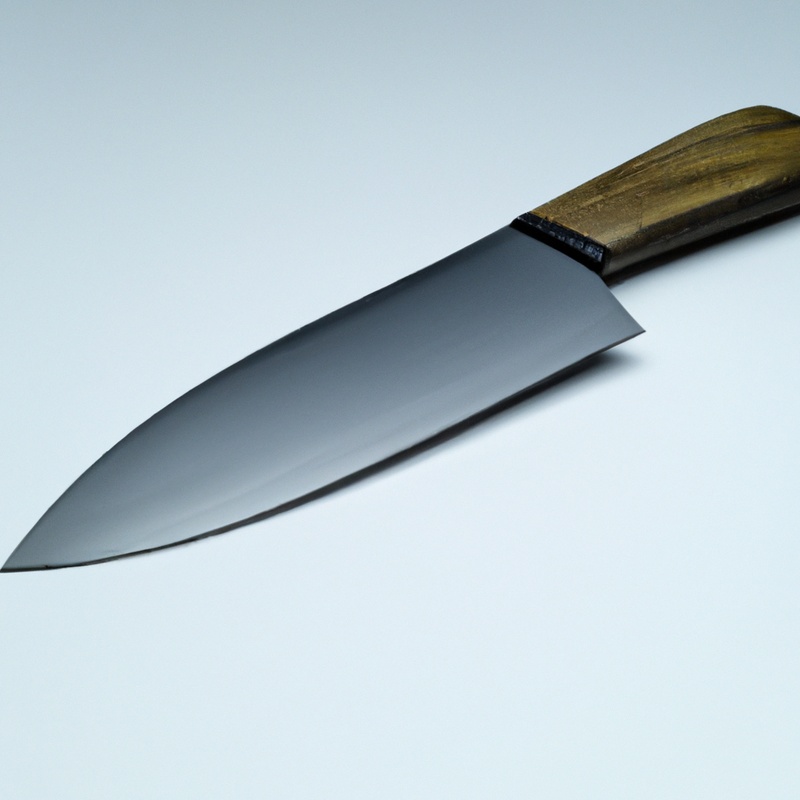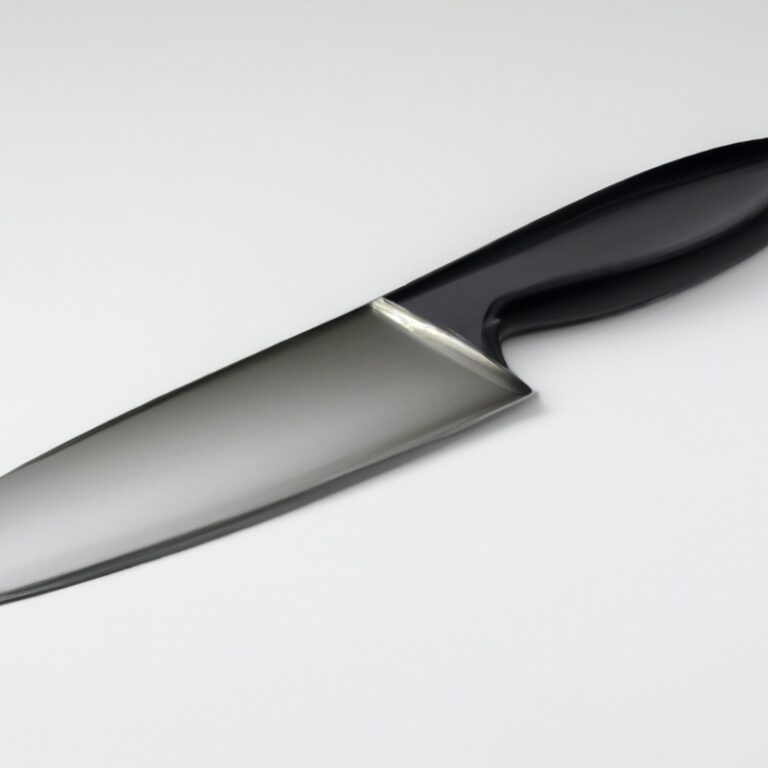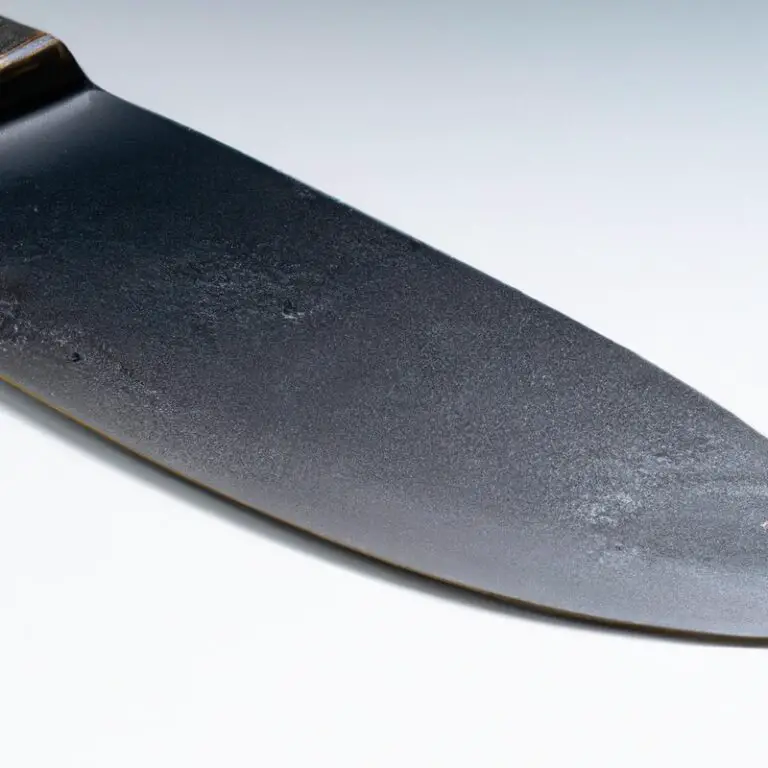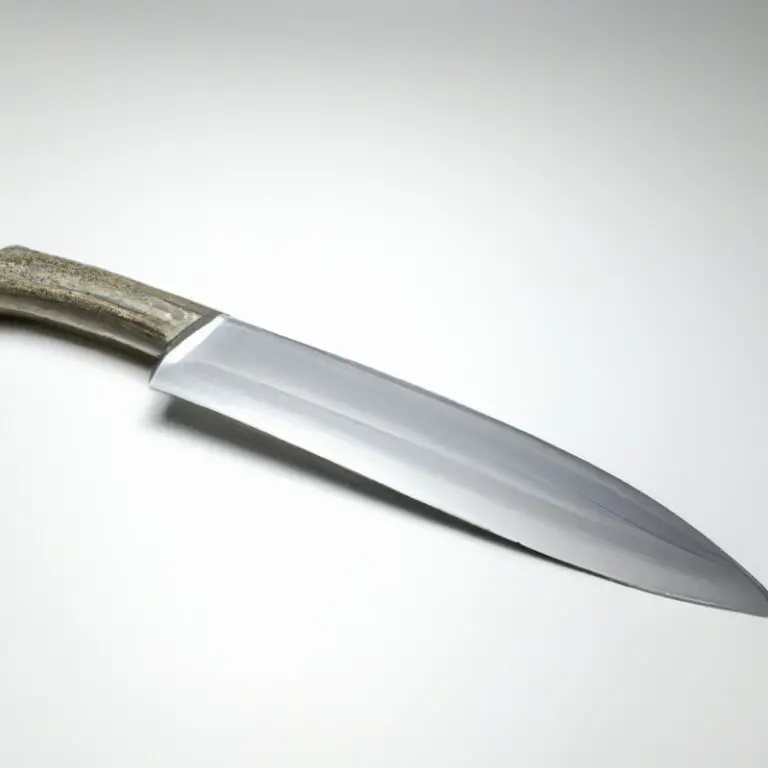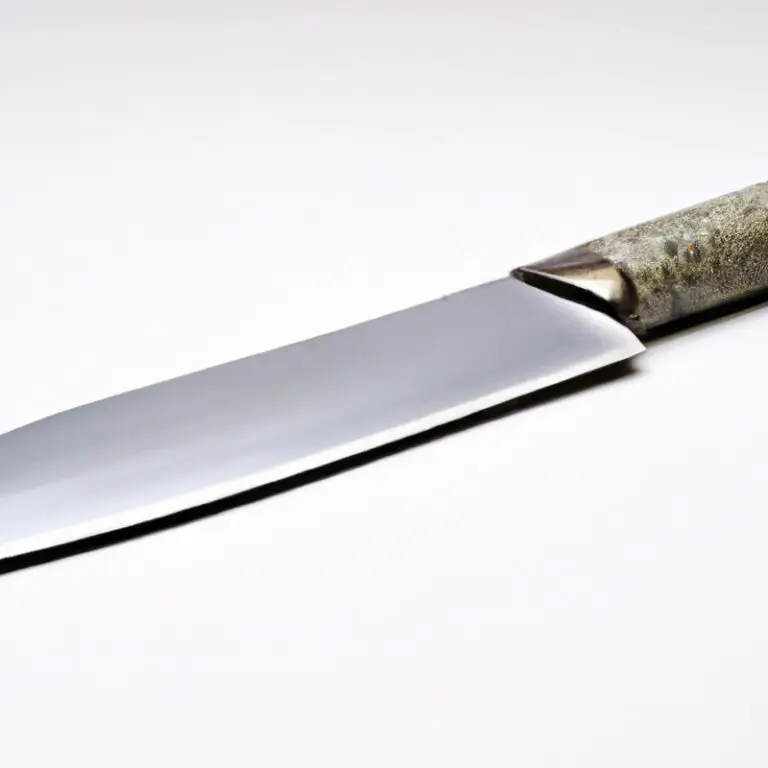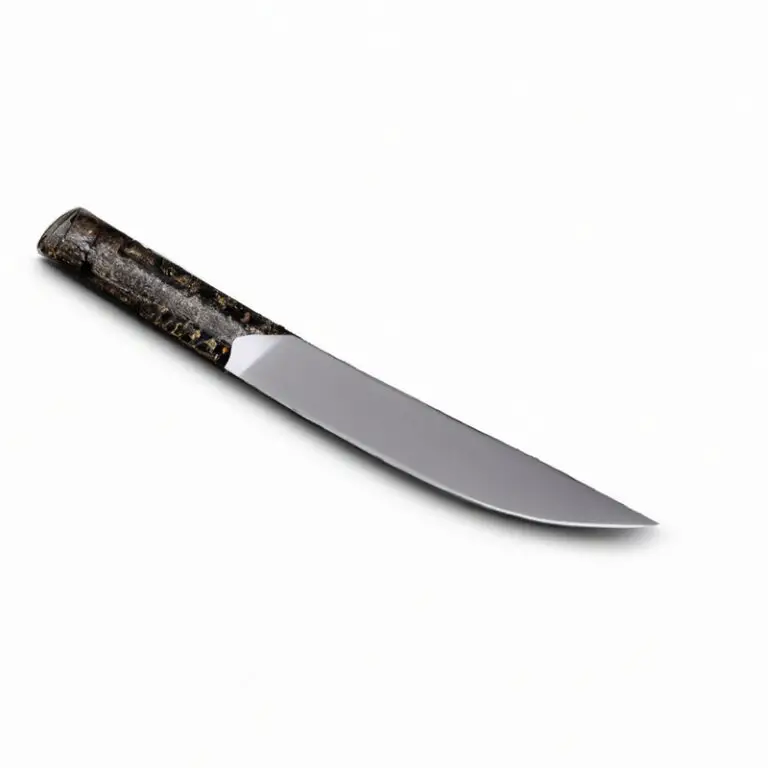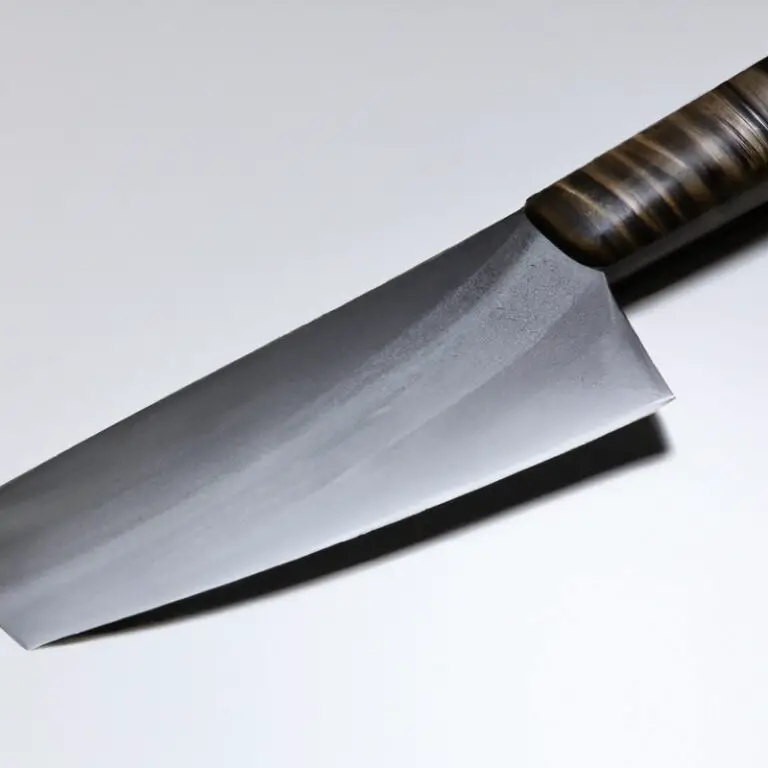How To Clean And Care For a Knife Block Used With Gyuto Knives? – Efficiently!
Key Takeaways:
- Regular cleaning is essential to maintain the hygiene and sharpness of a knife block.
- Use a damp cloth to wipe the knife block, and avoid using water or harsh chemicals.
- Ensure that the knife block is completely dry before storing the knives to prevent rust or damage to the blades.
- It is crucial to use a knife block designed specifically for Gyuto knives to ensure optimal safety and protection.
A well-maintained knife block is essential for prolonging the life of your Gyuto knives, which are known for their sharpness and precision. As someone who regularly uses Gyuto knives, I understand the importance of keeping the knife block clean and hygienic.
But with so many materials and cleaning agents available, it can be challenging to know where to start.
In this article, I will walk you through the step-by-step process of cleaning and caring for your knife block, as well as offer tips on materials, seasoning, and storage to keep your knives in top condition. So, let’s get started!
| Step | Cleaning Process | Care Process |
|---|---|---|
| 1 | Remove all knives from the block and discard any debris and dust. | Check that the knives are clean and dry before returning them to the block. |
| 2 | Wash the block with warm water and mild soap. | Apply a food-grade mineral oil to the block to keep the wood moisturized. |
| 3 | Rinse the block thoroughly with clean water and dry it with a towel. | Store the block in a cool, dry place away from direct sunlight. |
| 4 | Disinfect the block with a solution of 1 part white vinegar to 3 parts water once a month. | Inspect the block regularly for any signs of cracks, warping, or other damage. |
Understanding the importance of cleaning and maintaining a knife block
The importance of cleaning and maintaining a knife block cannot be overstated. A dirty knife block can harbor bacteria and germs that can contaminate your knives and affect their performance over time.
Regular cleaning and maintenance help to ensure the longevity of both your knives and the block they are stored in.
Neglecting to clean your knife block can also lead to discoloration, staining, and an overall unappealing appearance. It is recommended to clean your knife block at least once every six months, or whenever you notice dirt, debris, or other signs of wear and tear.
Using the right materials and cleaning agents is vital, as harsh chemicals or abrasive materials can damage the block’s surface.
Proper drying and storage techniques are also critical in ensuring your knife block is in tip-top shape. Ultimately, investing in regular cleaning and maintenance will not only enhance the performance of your Gyuto knives but also promote hygiene and safety in your kitchen.
The unique features and benefits of Gyuto knives
Gyuto knives are a type of Japanese chef’s knife that gained popularity worldwide due to their unique features and benefits. Some of the unique features of a Gyuto knife include a thin and lightweight blade, a sharp and curved edge, and a pointed tip.
These features allow for precise and effortless cutting, slicing, and chopping of various foods.
In terms of benefits, Gyuto knives offer excellent versatility, making them a go-to choice for professional chefs and home cooks alike. They can handle a wide range of tasks, from cutting meat and vegetables to filleting fish and slicing sushi.
Gyuto knives also offer superior balance and control, thanks to their ergonomic design and comfortable grip, which reduces hand fatigue and ensures safer handling.
Furthermore, Gyuto knives are typically made from high-quality materials such as high-carbon steel or Damascus steel, which makes them durable, resistant to wear and tear, and easy to sharpen. With proper care and maintenance, a Gyuto knife can last for years, providing efficient performance and reliable results.
The unique features and benefits of a Gyuto knife make it an essential tool in every kitchen.
Whether you are a professional chef or a home cook, investing in a high-quality Gyuto knife and maintaining it correctly will not only improve your cooking skills but also enhance your overall kitchen experience.
Step-by-step guide to cleaning a knife block – the dos and don’ts
Step-by-step guide to cleaning a knife block – the dos and don’ts: Dos:
- Empty the knife block and remove any loose debris.
- Clean the exterior of the block with a damp cloth and mild soap.
- Use a soft brush to remove any dirt or debris from the knife slots.
- Clean the knife slots with a solution made of equal parts water and vinegar.
- Rinse the slots and wipe them dry with a clean cloth.
- Allow the knife block to air dry completely.
- Apply mineral oil to the knife block once it’s dry.
Don’ts:
- Don’t immerse the knife block in water or put it in the dishwasher.
- Don’t use harsh chemicals or abrasive cleaners on the knife block.
- Don’t use steel wool or other abrasive materials to clean the knife slots.
- Don’t put wet knives into the knife block.
Following these simple steps and avoiding the mentioned don’ts can help you maintain a clean and safe knife block that will protect your Gyuto knives and maintain their sharpness.
When should you clean your knife block – frequency and signs of wear and tear
To keep your knife block in top condition, it is important to clean it regularly. The frequency of cleaning depends on how often you use your knives.
If you use your knives on a daily basis, it is recommended to clean your knife block every 3-6 months.
However, if you use your knives less frequently, cleaning your knife block once or twice a year might be sufficient. Signs of wear and tear on your knife block include scratches, dents, and discoloration.
Scratches and dents can trap bacteria, making it difficult to clean your knife block effectively.
Discoloration is often caused by food stains, and it can be hard to remove if left unattended. If you notice any of these signs, it’s time to clean your knife block.
Regular cleaning of your knife block ensures that it stays hygienic and prevents contamination of your knives.
A clean knife block also helps prevent dulling of knife blades, as debris and dust can accumulate and cause damage over time.
Choosing the right materials and cleaning agents – Tips for effective cleaning
Choosing the right materials and cleaning agents is crucial in keeping your knife block clean and well-maintained. Here are some tips for effective cleaning:
- Use a soft cloth or sponge to wipe your knife block clean. Avoid abrasive cloths or sponges to prevent scratches on the surface.
- Use mild dish soap and warm water to clean your knife block. Avoid using harsh chemicals or bleach as they can damage the wood and affect the integrity of your knives.
- For tough stains, use baking soda or a vinegar solution to remove them. Apply the mixture with a soft cloth and let it sit for a few minutes before wiping it clean.
- To disinfect your knife block, use a solution of 1-part vinegar and 1-part water. Apply the solution with a clean cloth and let it sit for a few minutes before wiping it clean.
- Avoid soaking your knife block in water or leaving it wet for an extended period as it can cause the wood to warp and crack.
By following these tips, you can effectively clean and maintain your knife block, ensuring it lasts for years to come and keeps your Gyuto knives in top condition.
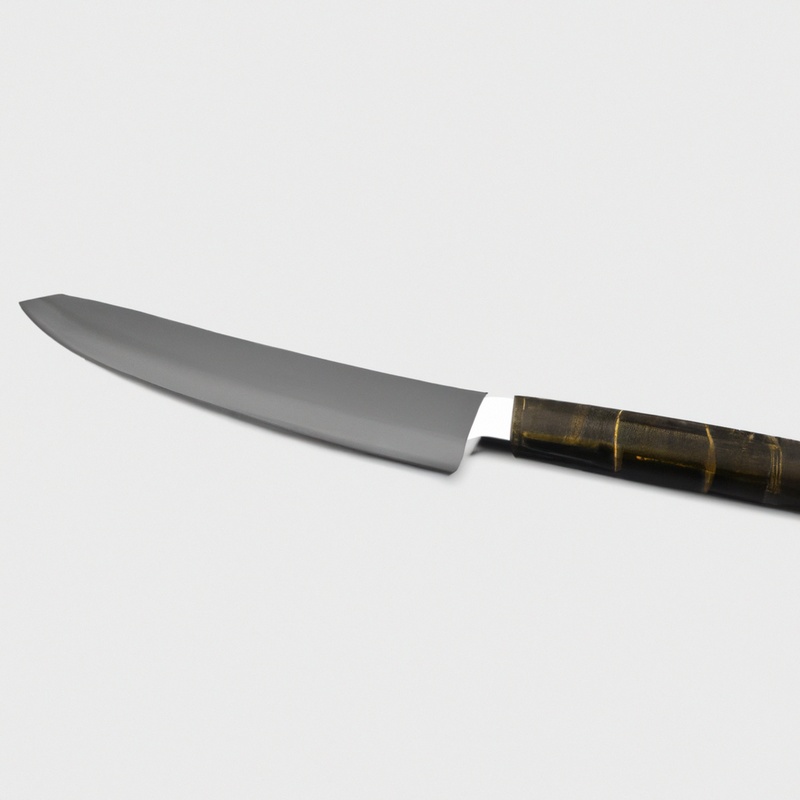
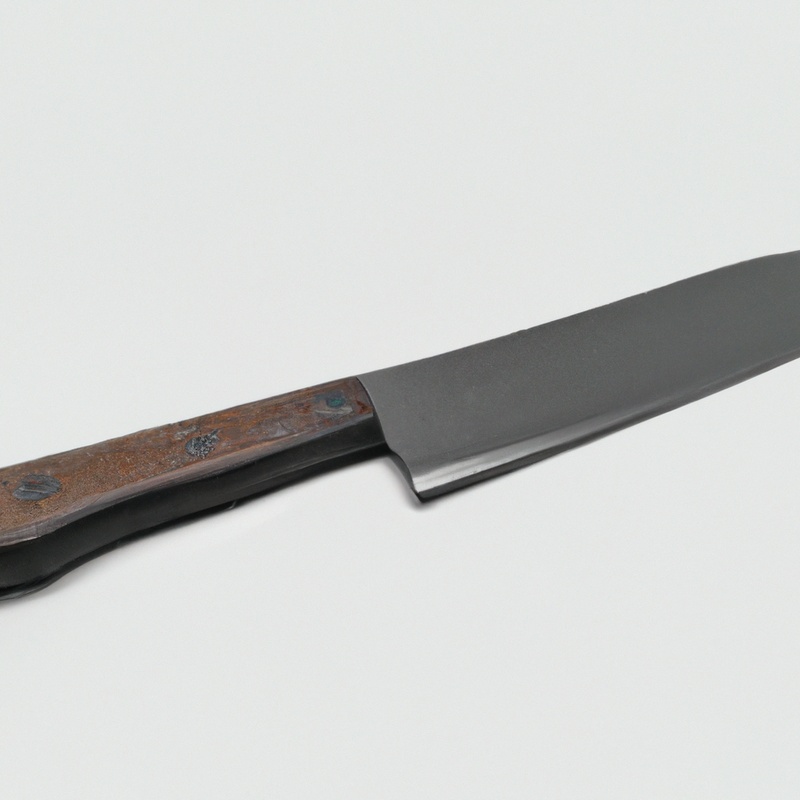
How to remove stains and discoloration from your knife block
To remove stains and discoloration from your knife block, mix baking soda and water to form a paste and spread it onto the affected area. Let the paste sit for several minutes before wiping it away with a damp cloth.
For tougher stains, use a mixture of equal parts water and white vinegar.
Avoid using steel wool or abrasive cleaners, as they can scratch the surface of the block. Regular cleaning and seasoning can prevent discoloration and staining from occurring in the future.
The role of seasoning in maintaining a knife block
Seasoning is a process of treating a wooden surface to increase its durability and resistance to wear and tear. When it comes to maintaining a knife block, seasoning is crucial.
It helps prevent moisture from seeping into the wood and causing damage to your knives.
Additionally, seasoning can improve the overall appearance of the knife block by highlighting the natural wood grain. To season a knife block, first, ensure it is clean and dry.
Apply a thin layer of food-grade mineral oil to the entire surface of the block, including the slots where the knives are stored.
Allow the oil to saturate the wood for a few hours before wiping away any excess oil. Repeat this process every 3-4 months, or as needed, to keep your knife block in its best condition.
Note that using vegetable-based oils, such as olive oil or coconut oil, is not recommended as they can go rancid over time and cause a foul odor.
Mineral oil is the best choice for seasoning a knife block as it is odorless, flavorless, non-toxic, and won’t spoil. Overall, seasoning is a crucial step in maintaining a healthy knife block, increasing its life span, and allowing your Gyuto knives to perform their best.
Don’t skip this crucial step in your cleaning and maintenance routine.
Tips for drying and storing a knife block
Tips for Drying and Storing a Knife Block:
- After cleaning your knife block, make sure it is completely dry before storing it. Water can cause wood to warp, and moisture can lead to the growth of bacteria.
- You can air dry your knife block, but make sure it is in a dry, well-ventilated area. Otherwise, residual moisture may remain.
- Alternatively, you can wipe your knife block dry with a clean cloth or towel, making sure to remove all moisture.
- Store your knife block in a cool, dry, and well-ventilated area. Avoid placing it near heat sources such as stoves and ovens.
- When storing your knives, make sure they are clean and dry before placing them in the knife block. This will prevent rust and corrosion.
- Keep the knife block away from children and pets to prevent accidents.
By following these tips, you can ensure that your knife block is properly maintained and your Gyuto knives remain in excellent condition.
Maintenance and upkeep – preventing rust, corrosion, and other damages to your knives
To prevent rust, corrosion, and other damages to your knives, it is crucial to follow these maintenance and upkeep tips:
- Keep knives dry and clean after use.
- Avoid leaving knives in a damp or wet spot for an extended period.
- Use a honing rod to maintain the edge.
- Keep knives sharp to prevent excessive force and pressure when using.
- Avoid putting knives in a dishwasher as the heat and chemicals can cause damage.
- Store knives in a dry and safe place.
- Use a rust eraser or a solution of vinegar and water to remove rust and stains on blade.
- Lastly, consider investing in a protective sheath or blade cover for storage and transportation purposes.
By following these steps, you will ensure that your Gyuto knives stay in good condition, function well, and last for years to come.
Troubleshooting common issues with knife blocks and Gyuto knives
Troubleshooting common issues with knife blocks and Gyuto knives:
- Dull Blades: If you’re noticing that your Gyuto knife isn’t cutting through your food as easily as before, that’s a sign its blades have become dull. Sharpen the blades of your knife using a honing rod or a sharpening stone.
- Rust and Corrosion: Rust and corrosion can occur on your Gyuto knife and knife block if they are not adequately cleaned and dried after use. Keep your knife and block dry at all times, and consider applying a rust-resistant oil.
- Stuck Knives: If your knives become stuck in the knife block, it could be a sign that the slots are too tight or clogged with debris. Clean the slots and use a knife with a narrower handle to avoid this issue.
- Loose Knives: Knife blocks can also loosen over time, leading to the knives becoming unsteady and unstable. Tighten the screws on the block or apply wood glue to prevent the knives from falling out.
- Uneven Slots: If the slots on your knife block become uneven, it could cause damage to your knives. Sand the slots carefully to ensure they’re all level and avoid storing your knives in the affected slots until fixed.
Final Verdict
A well-maintained knife block serves as the foundation for any seasoned chef’s toolkit. A proper cleaning and care regimen for your knife block ensures longevity of your knives and guarantees safe food preparation.
With the unique features and benefits of Gyuto knives, it becomes even more imperative to maintain your knife block regularly to combat wear and tear.
Our step-by-step guide, dos and don’ts, and tips for effective cleaning and storing will keep your knife block in top-notch condition. Remember, preventative maintenance and prompt troubleshooting can prevent rust, corrosion, and other forms of damage to your knives.
By following the guidelines in this article, you are empowered to preserve the value of your investment, enhance the flavor of your cuisine, and ensure the safety of your guests.
Step up your culinary game by investing time and attention in the upkeep of your knife block and Gyuto knives. Your culinary achievements will speak for themselves, backed by the timeless traditions of proper knife maintenance and care.

